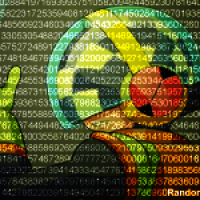

3 sticks of RAM…


3 sticks of RAM…


deleted by creator
The original, Blue Raspberry.


As a highly sensitive person, what I’ve learned for me is:


I loved my course on patterns. It was tough, but I now regularly feel like I can apply mastery of this tricky subject to my software projects. The course used a variety of techniques:
Together, this taught us
I appreciate this approach because patterns are an inherently fuzzy subject.


It’s more like languages evolved to incorporate the most common idioms and patterns of their ancestors. ASM abstracted common binary sequences. C abstracted common ASM control structures and call stacks. Java leaned hard on object orientation to enable compositional and inheritence-based patterns widely used in C and early OO languages. Python baselines a lot of those patterns, and makes things like the Null Object pattern unnecessary.
Don’t bee that way!


The implication of “leave a review!” is they want info on quality to improve service; the twist is they don’t care about that, just getting information about you for ad targeting.
A cluster duck, if you will.


May have to do with images loading and causing cards’ height to suddenly change and push down the content beneath it.


Some servers have a c/NoStupidQuestions


I cried watching Measure of a Man. It’s a gift to humanity. But Ad Astra Per Aspera clearly overtakes it imo. It doesn’t ask just about the implications of the law, but about what it - and society, and its constituents - should aspire to be. It’s less about military codes and an individual’s selfishness (Maddox), telling a more universally applicable story still firmly entrenched in Trek lore.


For people like me who need visual aids.



By that logic, I should take it up with the delivery guy; both he and the reseller simply passed-through a sealed product.


Ah yes, I must’ve used ChatGPT to generate the photos of it being sold in a sealed box. And the ebay account listing. And the receipt.


I could just make up a receipt from an authorized reseller. What kinda proof is good enough? Do these items degrade in a sealed box? If so, why track the warranty from resale date instead of manufacturing date? If not, photo evidence of a sealed box on sale should be sufficient imo.
The reality is, this sort of resale is common, is hardly more risky than with authorized resellers, and deserves greater consumer protections.


My Galaxy Note 20 used to let me schedule restarts daily. I’d put in my password, then biometrics would work the rest of the day. Then they removed the feature to make things “simpler;” so it reboots and requires a password whenever’s least convenient. (Unfortunately rooting isn’t an option when using a work profile.)
Passion. The people here care enough to have not only left Reddit, but to have made a new community here.
A lot of my feelings got summed up here: basically, the episode had a lot of momentum and incoherence. Beyond that,